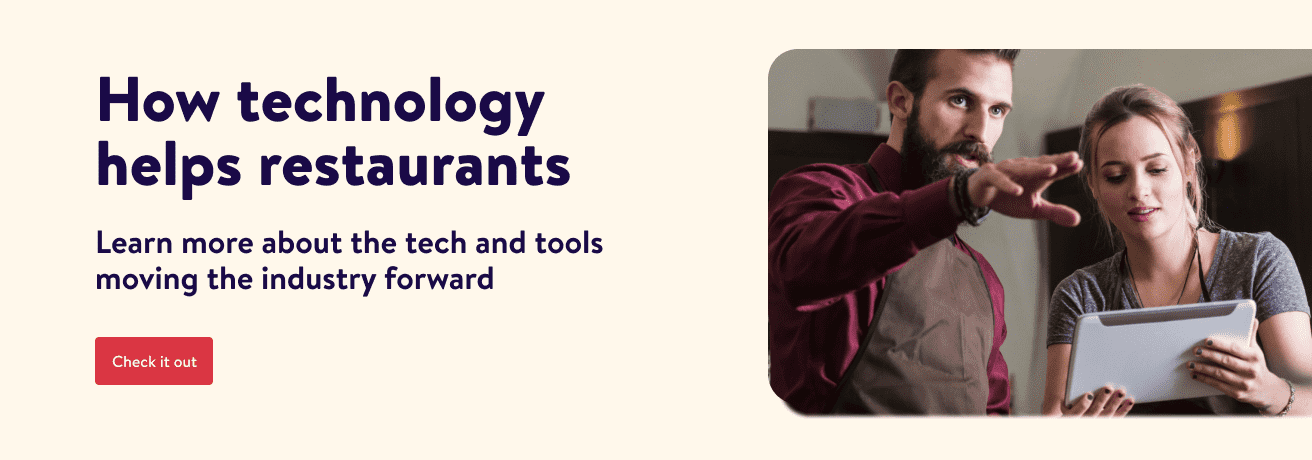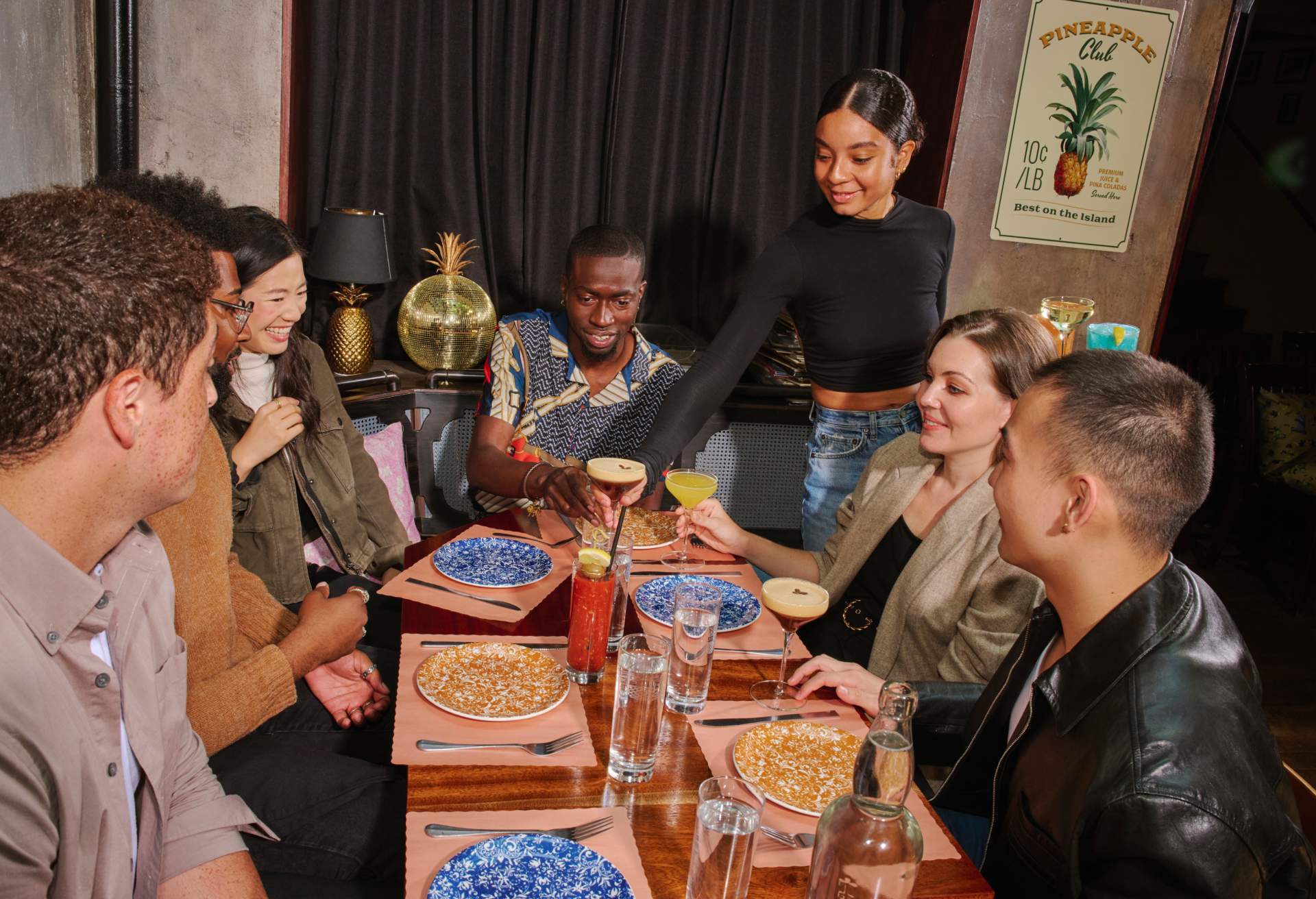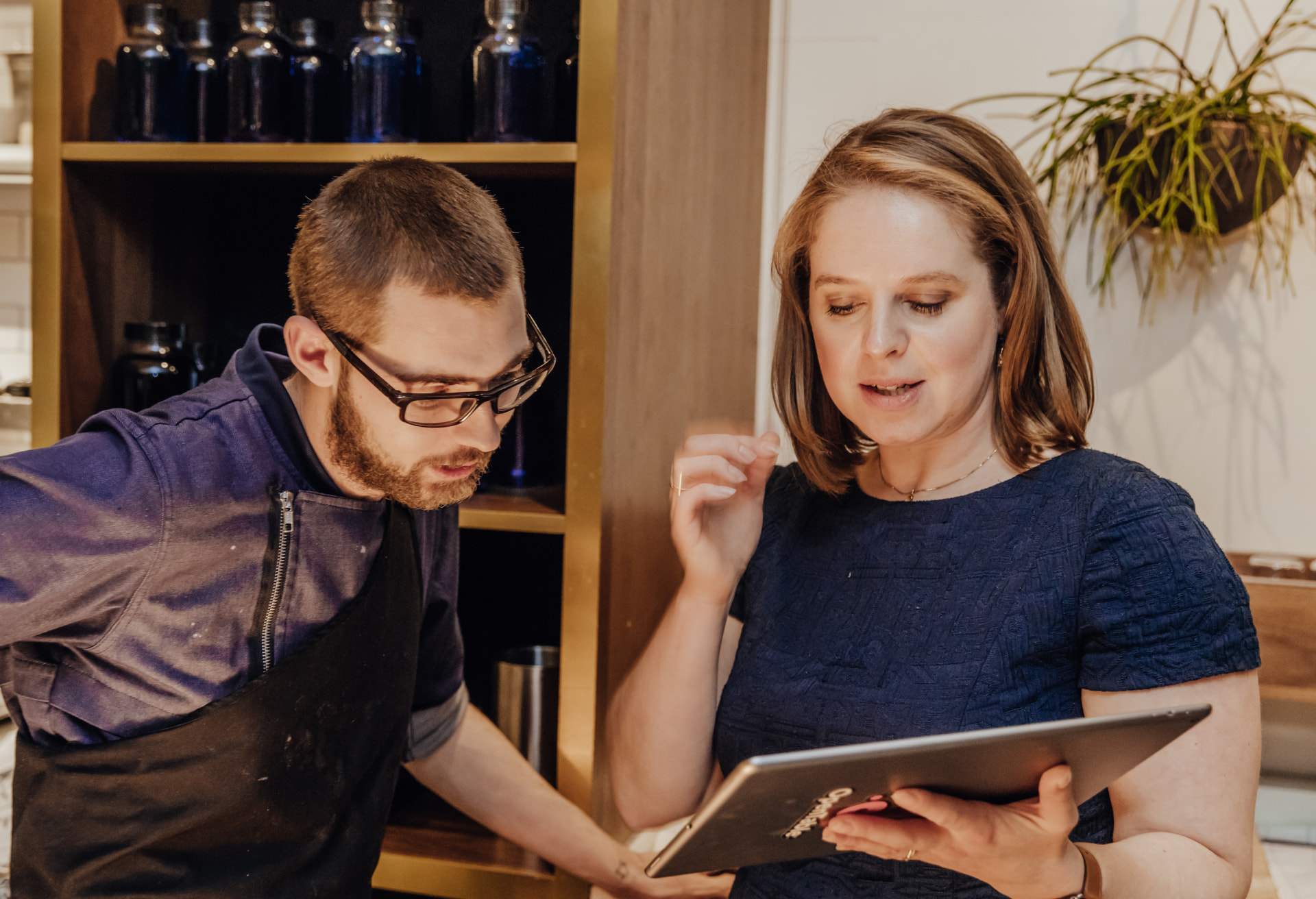Those with a passion for hospitality care more about people than computers.
But today, restaurant tech plays a major role in improving the guest experience. Technology will never be able to replace the personal touch of a seasoned server or the empathy of a veteran bartender, but it can be a huge help in increasing guest satisfaction and delivering a great experience.
Restaurants are judged based on how they make guests feel. And 60% of guests who have a positive guest experience at a restaurant say they’re likely to visit frequently. Restaurant technology can increase that level of customer satisfaction by making it easier to provide top-notch hospitality.
Quick links
What is the guest experience?
What are the key elements of a great guest experience?
Before
During
After
How does restaurant technology help servers?
How does technology improve the off premise guest experience?
How to measure guest experience
Should you hire a guest experience manager?
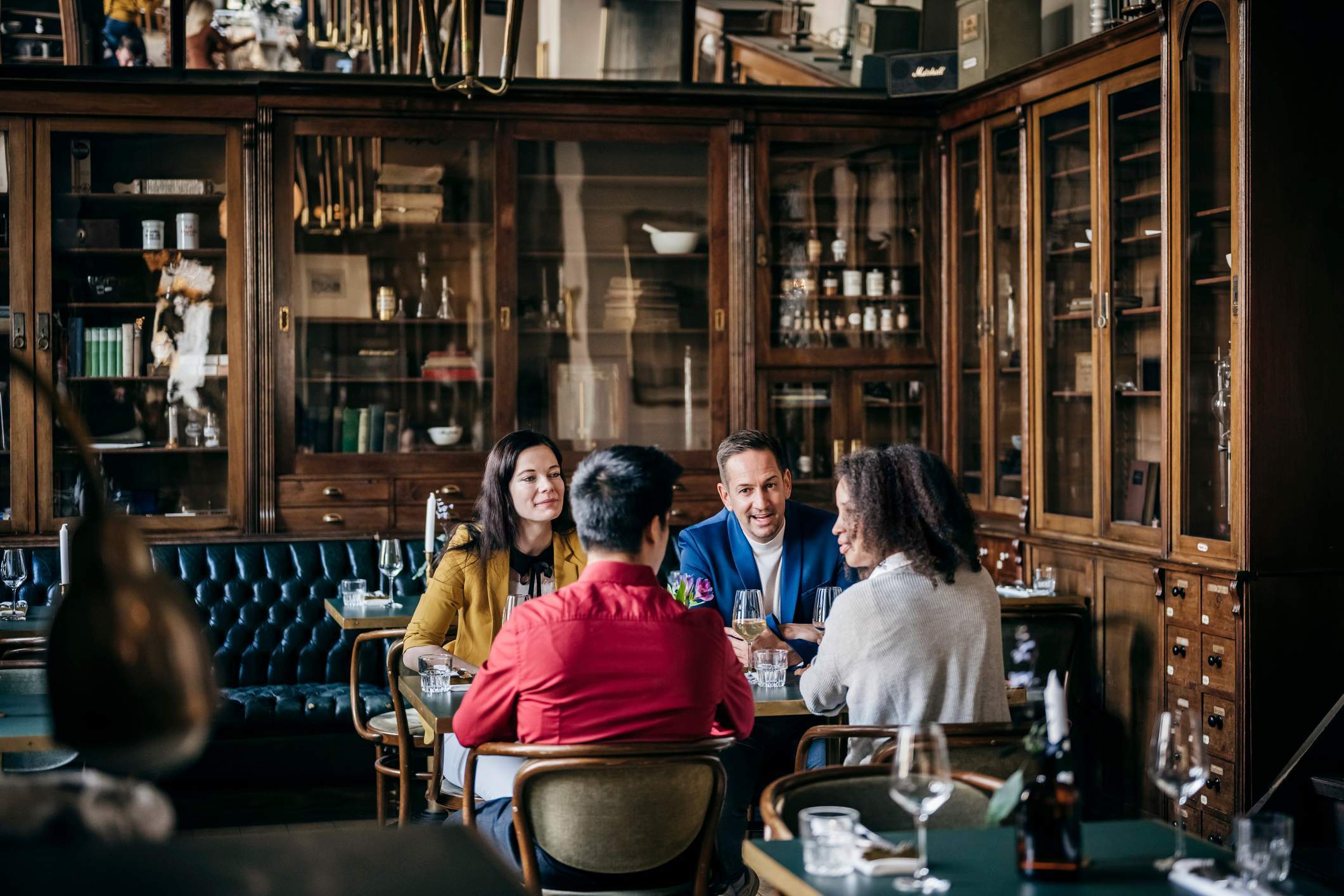
What is the guest experience?
You’ll hear the term “guest experience” in any kind of hospitality business, and it falls under the umbrella of customer service. In a nutshell, it’s the relationship a business has with customers, before, during and after their visit. When you exceed guest expectations time after time, you’ll know you’ve mastered the art of serving diners.
For restaurants, customers really are like guests in your home. It can be helpful to think of them as friends coming over for a meal. Just as you tend to the relationships you have with your friends even when you’re apart, guests should be always on your mind.
Though you can probably remember all the vital facts about the people in your inner social circle, it’s impossible to recall everything about a restaurant’s hundreds or even thousands of guests. That’s where restaurant technology comes in.
What are the key elements of a great guest experience?
What are the key elements of a great guest experience?
We can break the guest experience down into three parts: before, during and after their visit. Technology can help with all three stages:
Before
Searching online
Gone are the days when a guest’s first impression happened when they just so happened to have walked past your restaurant. Most potential guests, especially Millennials and Gen Z, first notice a restaurant online, usually on social media channels. In fact, most consumers (87%) have visited a new restaurant based on finding it on social media, according to a survey from OpenTable. From there, they may check out your website and menu.
Keep in mind that this all counts as the guest experience. To make it a good one, ensure your website and especially your menu are easy to read and navigate on mobile devices because that’s where most people will see them: as of February 2023, 51% of web traffic in Canada was mobile. So definitely check that all your basic information is easy to find on smartphones.
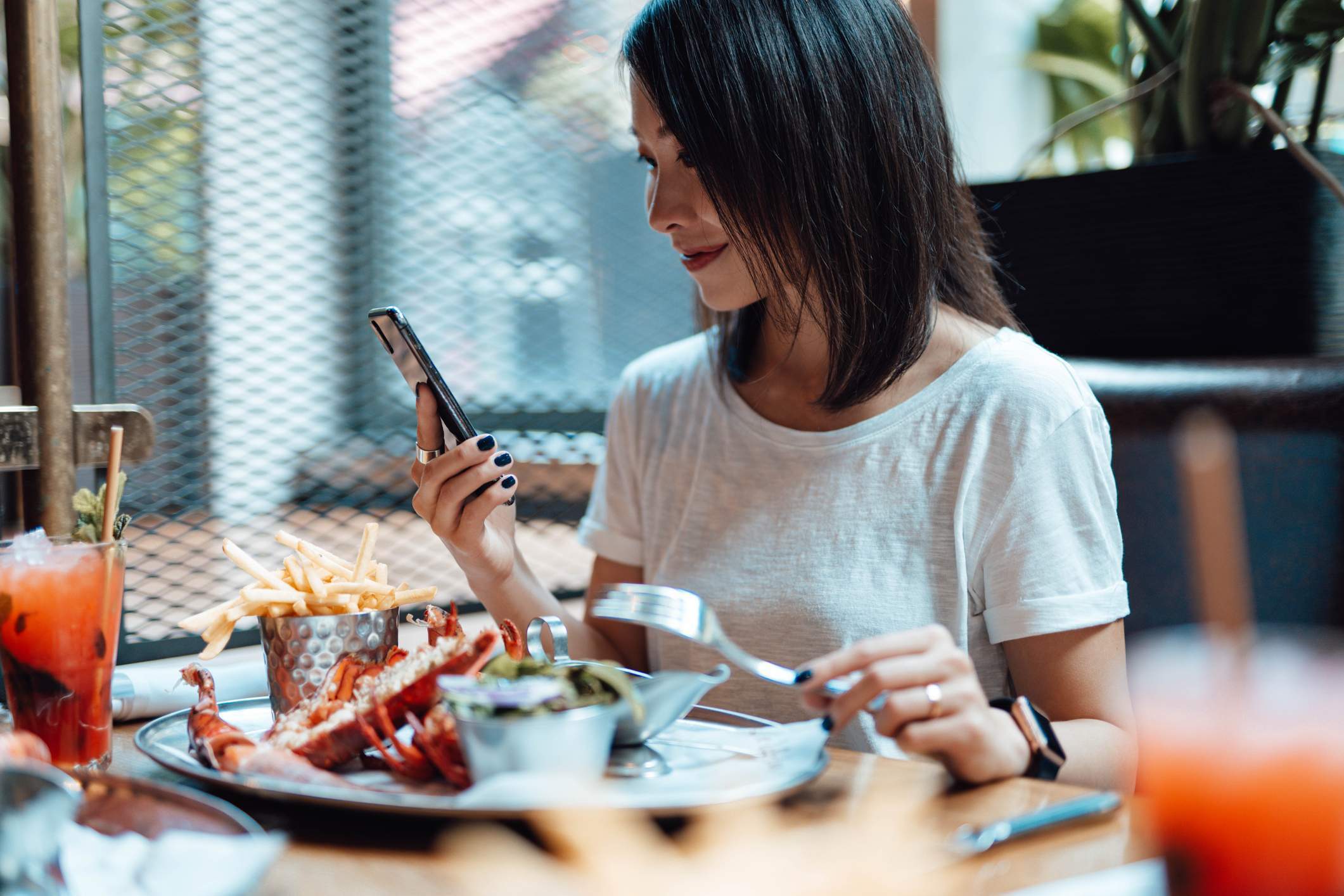
Making the reservation
Few people want to make phone calls of any kind these days. That’s just one reason to give guests the ability to book online through a reservation platform. Another is that it also lets them easily find a time, dining experience and type of seating that works for them. Reservation modifications or cancellations are handled with a few clicks in an app, making the entire experience more seamless.
Communicating in advance
Use direct messaging to touch base with guests on their terms before and after they make a reservation. It’s also a convenient way to answer their questions promptly, setting the tone for the courtesy they can expect during the rest of their guest experience.
During
Welcome
The moment you welcome a guest has the power to increase loyalty. It all depends on whether or not they hear the magic word: their name. Brain imaging has shown that it delights people to hear their own name. With guest data at the host’s fingertips, it’s easy to offer this simple yet meaningful touch.
Hopefully, for guests with reservations, that warm welcome will seamlessly move to the party being seated. When it comes to keeping walk-ins happy, an online waitlist can get their guest experience off to a better start. Most people like waiting from a nearby park, shop or bar knowing they can watch they’re place online and be notified when their table is ready.
Personalised service
Technology helps a skilled server do what they do best even better. It puts rich guest profile data at their fingertips. Armed with information from past visits, a server can pre-set a table at a family restaurant with crayons and coloring placemats for a party they know includes kids. At a fine dining restaurant, a server can see that a big spender is coming in for their wedding anniversary and welcome them with a complimentary glass of champagne.
This level of personalization is the hallmark of great guest experiences, and technology is the facilitator.
Payment
Technology can ease the major pain point of settling up at a restaurant: waiting. Solutions including digital ordering and handheld POS (point of sale) devices can remove steps and precious minutes from the process. Not only will speeding up payments make the customer experience better, but it can help turn tables 15% to 20% faster. The right POS system also collects guest data and provides reports that you can use to make more strategic decisions.

After
Repeat business
Technology makes it easier than ever to stay connected with guests between visits. It also provides an opportunity to personalise any emails you send. For instance, you can Invite them to special events you know suit their tastes. Doing so makes people feel understood by a restaurant. In turn, they are more likely to come back again and again.
How does restaurant technology help servers?
Technology lends a big helping hand to servers and other front of house team members – but only if everyone uses it. That’s why user friendliness should be in mind whenever you choose a new reservation platform, table management system or other tool. Look for well-designed systems that are intuitive and offer reliable customer support.
With that caveat out of the way, here are some of the ways technology can help your team.
Scheduling software
This tool makes it easy for team members to swap shifts, send messages to managers, and see their time off requests.
Digital ordering
When guests can use their phone to order another round of drinks without flagging down a server, it frees that server up to spend more time offering guests highly personalised hospitality,
Payment
When you recruit tech tools to get the team paid, you open the door to employee-friendly options like earned wage access.
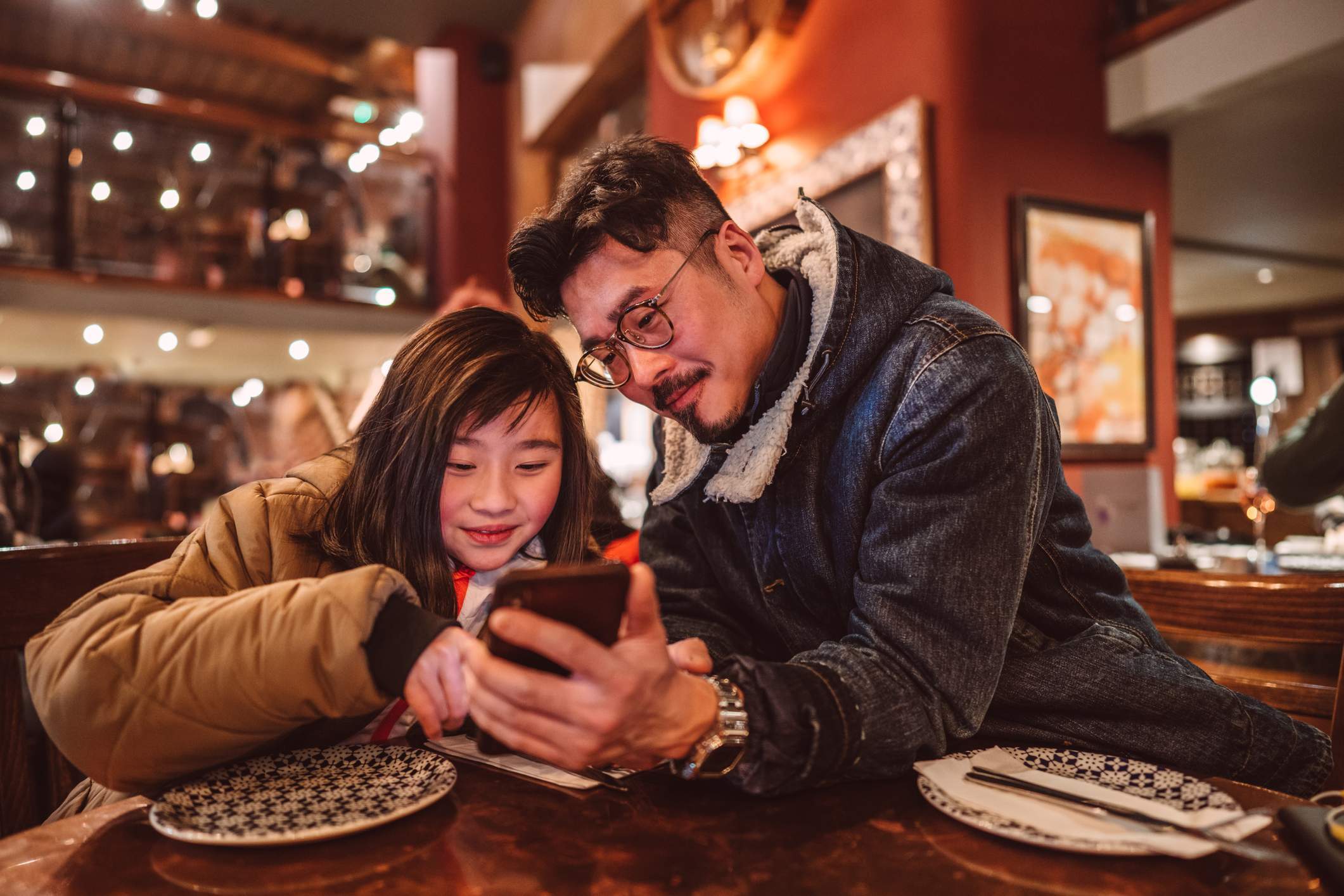
How does technology improve the off premises guest experience?
The people who sit down in the dining room and at the bar aren’t the only guests whose experience should be a good one. It pays to think of every person who places a takeaway or delivery order as your guest as well.
Just as you can with on-premise guests, you can leverage guest profile details to reward repeat customers with a little something extra that you know they’ll love. You can also target your loyal takeaway or delivery guests with personalised offers via email to entice them to join in the dining room.
How to measure guest experience
If you’ve set a goal of improving the guest experience with restaurant technology, you’ll want to measure your results to see if it’s succeeding. Sending a follow-up feedback survey after their visit is one way technology can help you gather data to gauge your progress.
You can also use reputation management tools to track and respond to online reviews from all the major sites in one convenient place.
Should you hire a guest experience manager?
A guest experience manager is an employee whose whole job is managing every aspect of the guest journey.
The role of a guest experience manager is more common in hotels than in restaurants, but restaurants are starting to recruit for this position as well. Because restaurant technology plays such a big role in creating great guest experiences, having one tech-savvy person who is the resident expert on every tool in your tech stack can be invaluable.
Technology isn’t the enemy of high-touch hospitality. If anything, the right tools and systems will supercharge a restaurant’s ability to offer an extraordinary guest experience for each person who visits.


